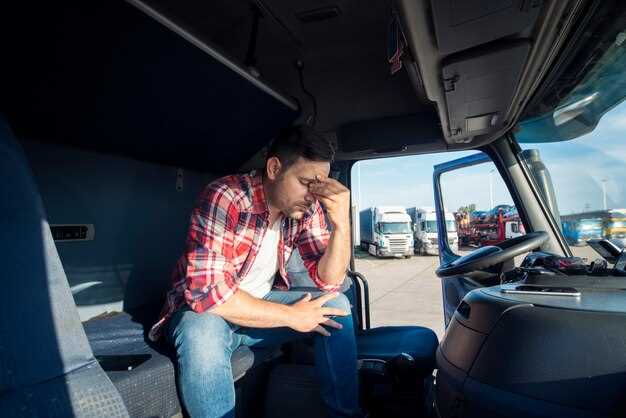
Towing a trailer can offer significant advantages for transporting goods and recreational activities. However, it also comes with important liability risks that every driver should understand. These risks can lead to financial burdens and legal complications if an accident occurs while towing.
Understanding liability when towing is crucial for both safety and compliance with legal regulations. As a tow vehicle driver, you are responsible for the trailer and its contents, which means that any damages or injuries caused during the towing process could result in a liability claim against you. This responsibility extends to ensuring that the trailer is properly secured and within the legal weight limits dictated by your vehicle’s towing capacity.
Many drivers underestimate the importance of regular maintenance checks and proper hitch installation. Neglecting these aspects can result in catastrophic accidents, leading to serious injuries and extensive property damage. Being informed about the potential liability risks of towing is not just prudent; it is essential for protecting yourself and others on the road.
Understanding Insurance Coverage for Towing Operations
When engaging in towing operations, it is crucial to have a comprehensive understanding of your insurance coverage. Towing can expose operators to various liability risks, making it essential to secure the appropriate insurance policies to protect against potential claims.
The first step is to identify the type of insurance coverage that applies specifically to towing. Standard auto insurance may not cover all liabilities associated with towing operations. It is important to obtain a specialized towing policy that addresses the unique risks involved, including damage to the towed vehicle and potential accidents caused during the towing operation.
Moreover, operators should consider liability limits. Higher limits provide better protection in the event of an accident or damage. Additionally, understanding what is covered within the policy–such as physical damage, bodily injury, and property damage–is essential for adequate risk management.
It is also wise to review any exclusions listed in the policy. Certain situations may not be covered, such as incidents resulting from negligence or improperly secured loads. Knowing these exclusions can help operators take preventive measures to mitigate risks.
Lastly, operators must keep abreast of state-specific regulations impacting towing operations, as these can affect insurance requirements. Ensuring compliance with local laws not only protects against legal repercussions but also reinforces the importance of having appropriate liability insurance in place.
Common Legal Liabilities Associated with Trailer Towing

Towing a trailer involves several legal liabilities that both drivers and owners must be aware of to avoid potential lawsuits and fines. One of the primary concerns is the risk of accidents caused by improper towing practices. If a trailer becomes detached and causes damage or injury, the driver may be held liable for negligence.
Another significant liability arises from overloading the trailer. Exceeding weight limits not only violates traffic laws but can also lead to loss of control, resulting in accidents. If an overloaded trailer causes injury to others, the driver may face serious legal repercussions.
Moreover, issues related to the proper maintenance of the trailer can also create liability risks. Failing to ensure that brakes, lights, and safety equipment are functioning correctly can lead to accidents. In such cases, liability may be placed on the owner for neglecting regular maintenance checks.
Insurance coverage is another critical aspect. Without adequate liability insurance, a towing driver may face financial ruin following an accident. Many jurisdictions require specific insurance policies for towing vehicles, and failing to comply can lead to legal penalties.
Additionally, driving while fatigued or under the influence of substances while towing can amplify liability. If an accident occurs under these circumstances, the driver may face criminal charges along with civil liability for any damages caused.
It is essential for those engaged in towing to familiarize themselves with local laws and regulations to mitigate these liability risks adequately. Understanding the responsibilities associated with towing can significantly reduce legal exposure and promote safer towing practices.
Safety Practices to Minimize Liability While Towing

Towing a trailer can be a rewarding experience, but it also comes with specific liabilities that drivers must manage. To minimize liability, adhering to best safety practices is essential.
First and foremost, ensure that your towing vehicle is adequately equipped for the load. This includes checking the towing capacity as stated in the owner’s manual. Overloading your vehicle can lead to loss of control, increasing the risk of accidents and subsequent liability.
Regular maintenance of both the towing vehicle and the trailer is critical. Check tire pressure, brakes, and lights before each trip. Failure to maintain these components can lead to mechanical failures, which might contribute to accidents, ultimately exposing you to liability.
Properly securing the load is equally important. Use appropriate tie-downs and ensure that the weight is distributed evenly. A shifting load can destabilize the trailer, increasing the likelihood of swaying or tipping, which can result in accidents and increase your liability risk.
Additionally, utilize safety chains as a backup in case the trailer uncouples. This simple yet effective practice can prevent a runaway trailer, thereby reducing the potential for severe accidents and minimizing liability concerns.
Familiarize yourself with the laws and regulations concerning towing in your area, as they may vary significantly. Understanding local requirements can help avoid legal issues and minimize exposure to liability.
Lastly, consider taking towing safety courses. These educational resources can provide you with best practices and strategies to handle adverse situations effectively, thereby reducing your liability when towing a trailer.





